A harsh truth about ourselves is brutal to hear, especially from a loved one. It’s almost like trying to swallow the most bitter pill that leaves a bad taste in your mouth for a while.
For this woman, the cruel reality of her unhealthy lifestyle slapped her hard when she was banned from babysitting her newborn grandchild. Her daughter’s concerns were legitimate, but instead of taking it in stride and doing something about it, she cried foul and threw different accusations.
The division within the family prompted the daughter to ask the internet if she was out of line for what she did.
A woman had been forbidden to babysit her newborn grandchild

Image credits: Natalia Blauth / Unsplash (not the actual photo)
Her daughter described her as “morbidly obese” and having trouble moving around

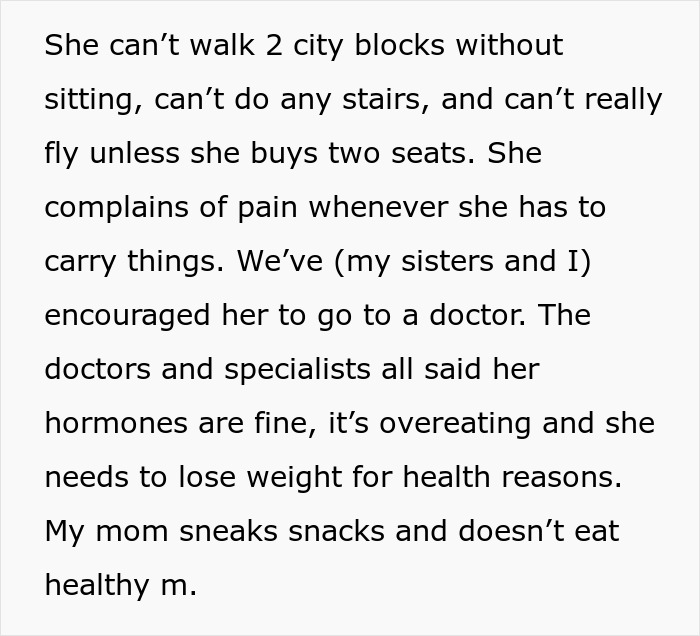



Image credits: AllGo / Unsplash (not the actual photo)
The daughter was worried that her mother might not be able to handle the babysitting duties


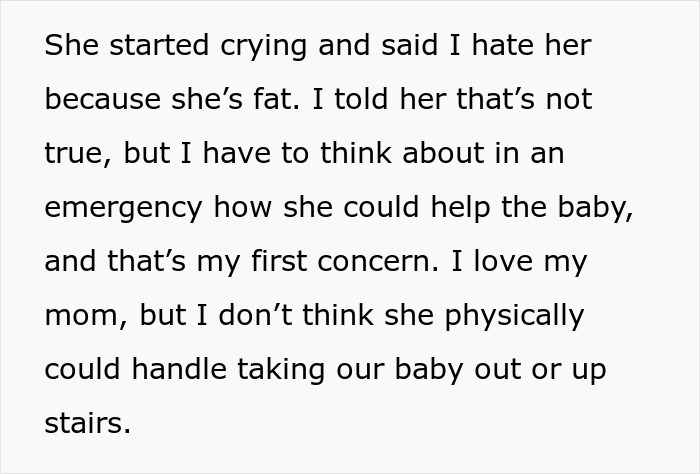

Image credits: Kateryna Hliznitsova / Unsplash (not the actual photo)
However, these legitimate concerns led to a full-blown rift within the family
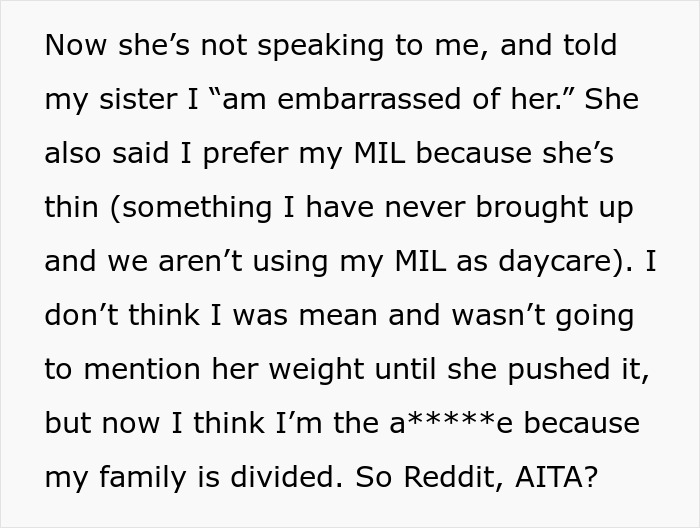
Image credits: annoyedatgrandma
Saying a harsh truth to a loved one is likely driven by spite

Image credits: Blake Cheek / Unsplash (not the actual photo)
While some people are commended for their “brutal” honesty, experts believe these statements may come from a place of malice.
“It may feel honest to be harsh, but it is probably spite,” Brigham Young University professor and relationship researcher Dr. Jason Whiting wrote in an article for Psychology Today.
People who describe themselves as “straight shooters” are likely used to this type of communication. Licensed psychologist Dr. Jonice Webb points out that it may be due to the environment they grew up in, which was likely emotionally neglectful.
Dr. Webb adds that using harsh words as a form of “honesty” may be a way to let the other person know you’re about to hurt them and get away with it. In turn, the receiver only puts their defenses up, much like the grandmother’s reaction in the story.
However, it’s also important to note that the ugly truth will always be difficult to handle, regardless of how you deliver it. As physician and keynote speaker Dr. Kevin Pho points out, people are more accepting of honesty when it’s not directed at them.
“The truth often strikes at the ego, and few possess the fortitude to endure it without feeling wounded,” he wrote in an article for his website.
So, what is the best way to deliver a harsh truth? Dr. Pho advises being honest and empathetic at the same time. Meanwhile, Dr. Whiting urges speaking devoid of strong emotions, stating, “Don’t mix bad words with a bad mood.”
The daughter could have voiced her concerns without appearing aggressive, saying something like, “Babysitting a newborn might be a lot of work. Are you sure you can handle it?”
She could also let her mother try babysitting a few times to see if she can handle the job. Her concerns, after all, are mere speculation.
The author provided more information to add to her story






Many readers sided with her
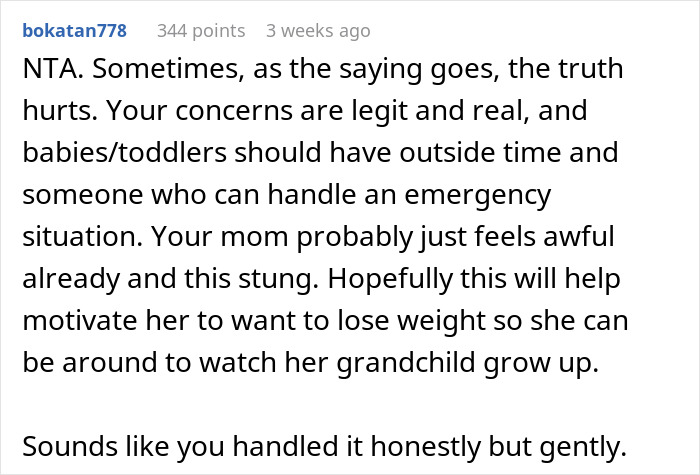
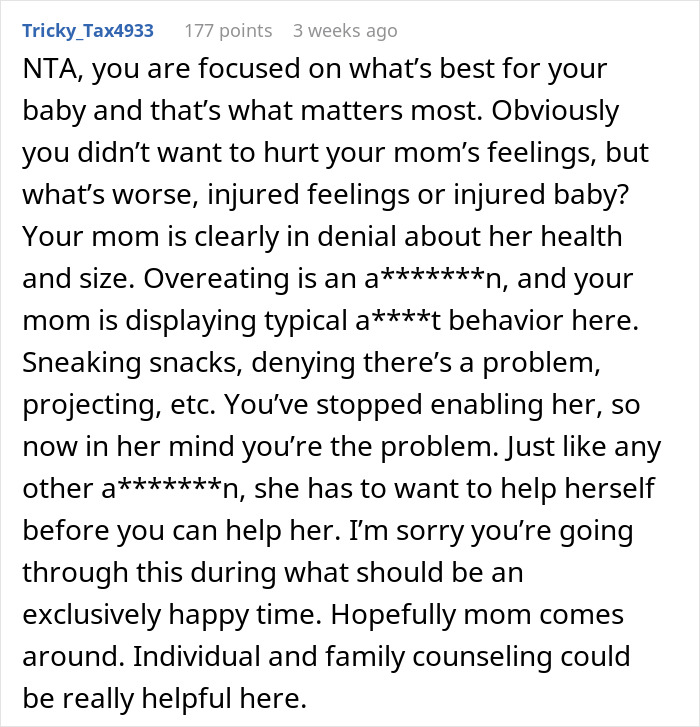
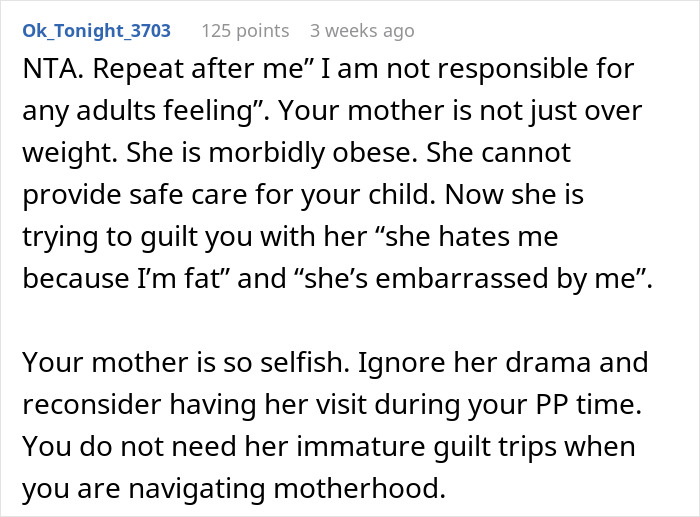
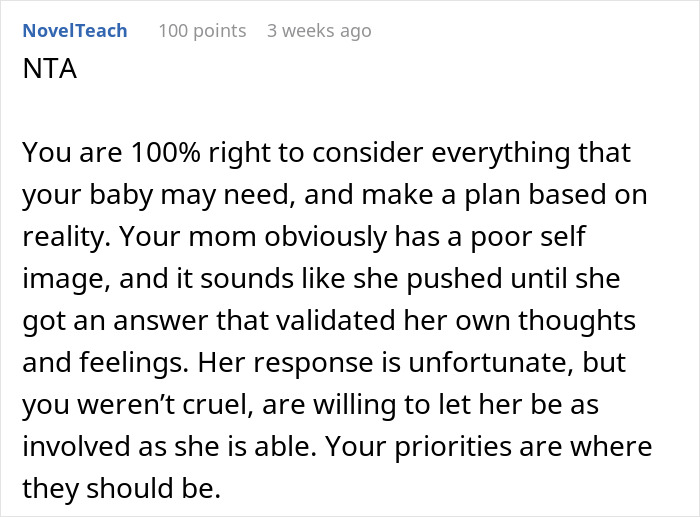
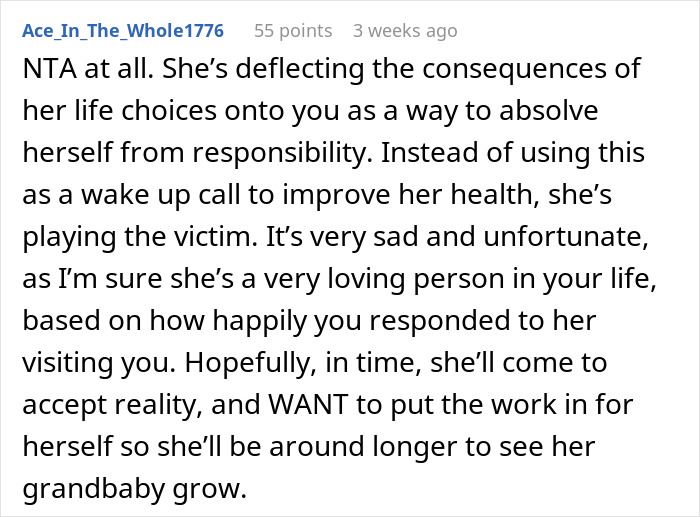
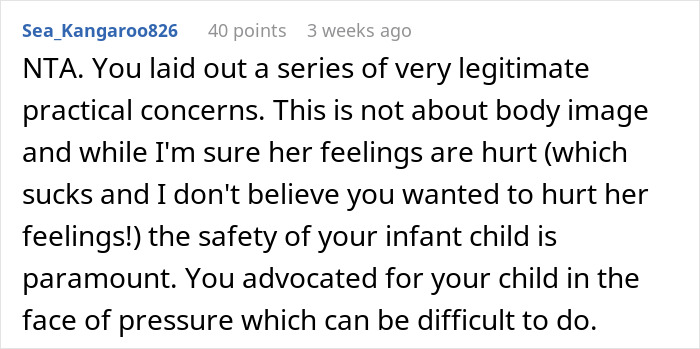
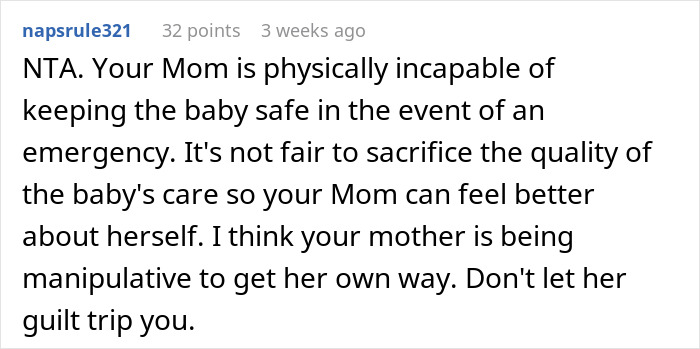

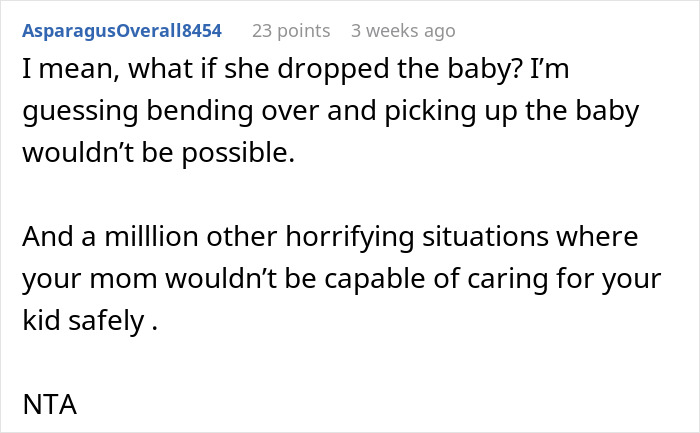


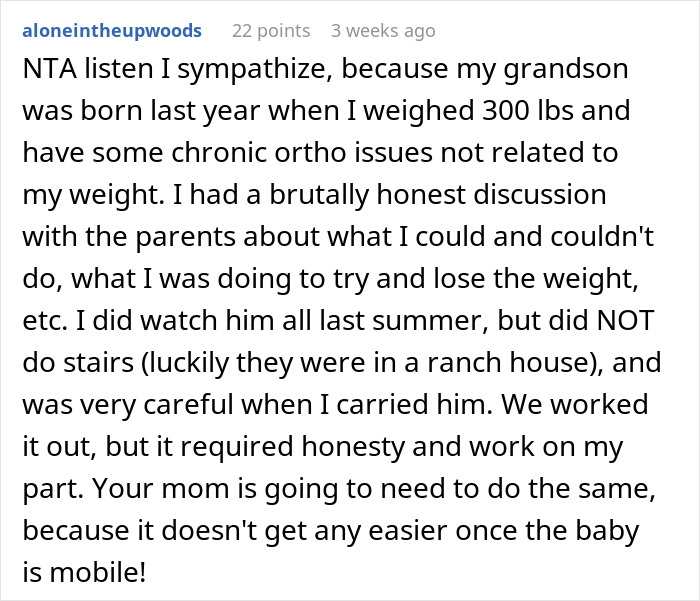
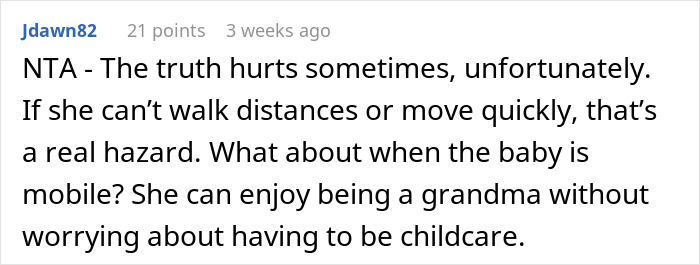
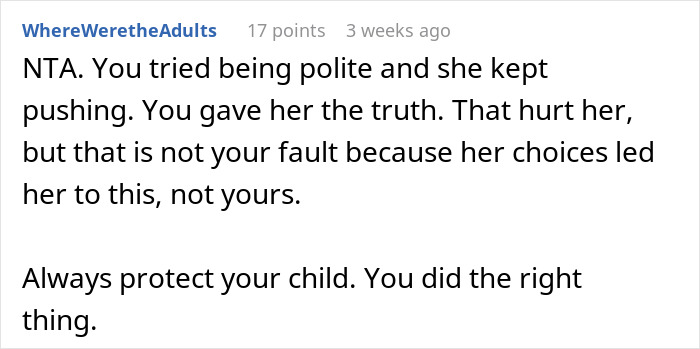



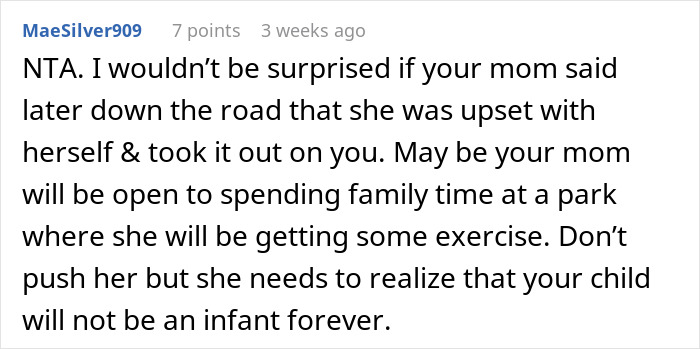
A few commenters called her out for how she phrased the message
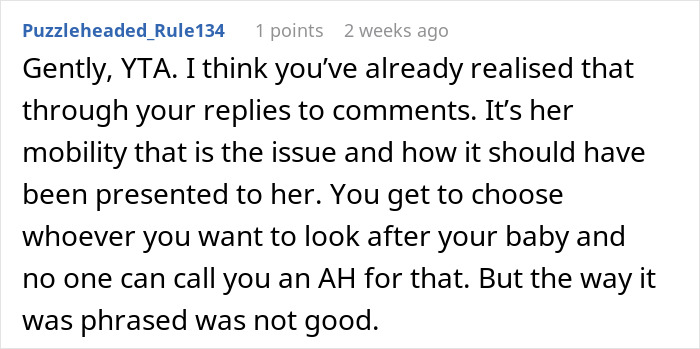

While some thought both mother and daughter were at fault




















